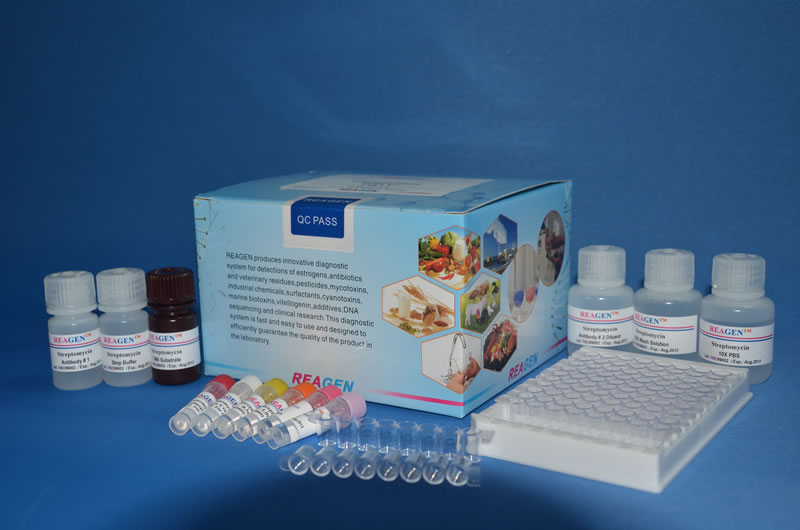pF12K RM Flexi Vector
货号: C9441 产品名称: pF12K RM Flexi Vector 品牌: Promega 规格: 20μg 二周到货 生化试验
说明
Regulated Mammalian Expression System ( 可控哺乳动物表达系统) 的特点在于本底低,可被迅速强烈地诱导,可下调哺乳动物细胞中的基因表达。可控哺乳动物表达系统基于新的开/ 关系统,开关通过嵌合的反式激活蛋白香豆素相关化合物进行迅速和灵敏的调控。纳摩尔浓度的抗生素香豆霉素即可引发嵌合反式激活蛋白同型二聚体的形成,接着与位于驱动转录目标蛋白编码序列的最小启动子上游的λ 操作子序列结合。蛋白表达水平可以通过调节香豆霉素的浓度来控制。更重要的是, 这一表达可以通过加入新生霉素而被迅速有效地关闭,新生霉素作为拮抗剂,可将反式激活蛋白二聚体解离。可控哺乳动物表达系统之所以适合基因表达的体内调控,在于引入哺乳动物细胞中的两种特别设计的质粒以及直接加入到培养基中的调控化合物-香豆霉素和新生霉素。
目的蛋白编码区被克隆进pF12A RM Flexi® 载体或pF12K RM Flexi® 载体,都是专门用于可控哺乳动物(RM) 的蛋白表达。这些载体整合有蛋白编码区上游的调控启动子序列,并且与Flexi® 载体系统兼容。以瞬时转染为例,含有目标蛋白编码区的pF12A 或pF12K RM Flexi® 载体与pReg neo 载体共转染进入哺乳动物细胞。在应答香豆霉素和新生霉素的调控过程中,pReg neo 载体被设计为表达嵌合反式激活蛋白,该蛋白可与pF12A 或pF12K RM Flexi® 载体的调控启动子区域发生作用。另外,在抗生素G-418 存在的条件下,pReg neo 载体编码的新霉素磷酸转移酶基因可允许稳定并转染细胞筛选和增殖中保持稳定。
特点 . 更好的数据:诱导表达高度可控,本底蛋白表达水平低。
• 表达水平可控:蛋白表达是剂量反应性的;蛋白表达的开启/ 关闭控制迅速而灵敏。
• 通用:与其它Flexi® 载体相兼容。

L1081 pF25K ICE T7 Flexi Vector 品牌 Promega
pF25K ICE T7 Flexi Vector
货号: L1081 产品名称: pF25K ICE T7 Flexi Vector 品牌: Promega 规格: 20μg 二周到货 生化试验
说明
TNT® T7 Insect Cell Extract Protein Expression System (TNT® T7 昆虫细胞提取物蛋白表达系统) 是用于无细胞蛋白表达的转录/ 翻译偶联系统,方便、快速,仅需使用一个试管即可完成。加入DNA模板即可启动蛋白合成反应,无需花费长时间在体外合成RNA。
该提取物由普遍使用的Sf21(Spodoptera frugiperda Sf21) 细胞系制成。所有转录/ 翻译反应的必要组分均在TNT® T7 ICE MasterMix 中提供。启动蛋白合成反应仅需加入DNA 模板。反应体系在28-30℃孵育,4 小时内完成。
克隆在T7 启动子下游的基因可被表达出来。pF25A 和pF25K ICE T7 Flexi® 载体经过优化,可使本系统得到最佳产率。这些载体在基因编码区域的5` 和3` 端含有非翻译区(UTR),用于提高翻译的效率。使用TNT® T7 昆虫细胞提取物蛋白表达系统及上述载体,可得到75μg/ml 的功能蛋白。
特点 • 更快地获得数据:在4 小时之内可表达出蛋白。
• 完备的体系:无需另外购买试剂。
• 可得到高产率蛋白:可表达高达75μg/ml 的功能蛋白,适用于多种下游实验。

MABS151 Anti-PFK, clone 16H1.1 品牌 Millipore
Anti-PFK, clone 16H1.1
货号: MABS151 产品名称: Anti-PFK, clone 16H1.1 品牌: Millipore 规格: EA MABS151 生化实验
Anti-PFK, clone 16H1.1
Species Reactivity Key Applications Host Format Antibody Type
H, M, R WB Mouse Purified Monoclonal Antibody
Description:
Anti-PFK Antibody, clone 16H1.1
Promotional Text:
Special Shipping Offer on Antibodies
100% Performance Guaranteed
Molecular Weight:
~82 kDa observed
Immunogen:
GST-tagged recombinant protein corresponding to human PFK.
Clone:
16H1.1
Isotype:
IgG2bκ
Background Information:
Phosphofructokinase 1 (PFK) is a metabolic enzyme that is highly expressed in muscle cells. PFK catalyzes the phosphorylation of fructose-6-phosphate to form fructose-1,6-biphosphate, the main substrate that initiates the glycolytic pathway. The active PFK enzyme is a tetramer formed from pre-existing dimers, and is primarily activated by fructose-2,6-bisphosphate. However, several endogenous molecules such as ATP, ADP, AMP, lactate, citrate, actin, and microtubules regulate PFK activity by stabilizing either the dimer or tetramer conformation. PFK is also phosphorylated at multiple serine, threonine and tyrosine residues in response to insulin, serotonin, and epinephrine, which triggers glycolysis. Defects in PFK may result in Tarui disease.
View All »
Species Reactivity:
Human
Mouse
Rat
Species Reactivity Note:
Demonstrated to react with Human, Mouse, and Rat.
Application Notes:
Western Blot Analysis: 0.5 – 2 µg/mL from a representative lot detected PFK in 10 µg of rat and mouse heart tissue lysates.
Control:
Human heart tissue lysate
Quality Assurance:
Evaluated by Western Blot in human heart tissue lysate.
Western Blot Analysis: 0.5 µg/mL of this antibody detected PFK in 10 µg of human heart tissue lysate.
Purification Method:
Protein G purified
Presentation:
Purified mouse monoclonal IgG2bκ in buffer containing 0.1 M Tris-Glycine (pH 7.4), 150 mM NaCl with 0.05% sodium azide.
Storage Conditions:
Stable for 1 year at 2-8°C from date of receipt.
UniProt Number:
P08237
Entrez Gene Number:
NP_000280
Gene Symbol:
PFKM
PFKX
Alternate Names:
6-phosphofructokinase, muscle type
Phosphofructo-1-kinase isozyme A
PFK-A
Phosphofructokinase-M
Phosphofructokinase 1
Phosphohexokinase
View All »
Usage Statement:
Unless otherwise stated in our catalog or other company documentation accompanying the product(s), our products are intended for research use only and are not to be used for any other purpose, which includes but is not limited to, unauthorized commercial uses, in vitro diagnostic uses, ex vivo or in vivo therapeutic uses or any type of consumption or application to humans or animals.
View All »
Key Applications:
Western Blotting
Product Name:
Anti-PFK, clone 16H1.1
Concentration:
Please refer to the Certificate of Analysis for the lot-specific concentration.
Antibody Type:
Monoclonal Antibody
Qty/Pk:
100 μg
Format:
Purified
Host:
Mouse
Applications:
Anti-PFK Antibody, clone 16H1.1 is an antibody against PFK for use in Western Blotting.
2-8℃

K776-100 Phosphofructokinase (PFK) Activity Colorimetric Assay Kit 品牌 Biovision
Phosphofructokinase (PFK) Activity Colorimetric Assay Kit
货号: K776-100 产品名称: Phosphofructokinase (PFK) Activity Colorimetric Assay Kit 品牌: Biovision 规格: 100 assays 3周到货 生化实验
Phosphofructokinase (PFK) Activity Colorimetric Assay Kit
Product Overview
Assay Kit Name:
Phosphofructokinase (PFK) Activity Colorimetric Assay Kit
Kit Summary:
• Detection method- Absorbance (450 nm)
• Applications- The kit can detect phosphofructokinase activity less than 1 mU.
Sample Type:
• Animal tissues: Liver, Brain, Heart, Muscles etc.
• Cell culture: Adherent or suspension cells.
Features & Benefits:
• Simple procedure
• Rapid, Convenient and Reliable
• Sensitive assay for measuring phosphofructokinase activity in various biological samples
Kit components:
• PFK Assay Buffer
• PFK Substrate (lyophilized)
• ATP (lyophilized)
• PFK Enzyme Mix (Lyophilized)
• PFK Developer (Lyophilized)
• NADH Standard (Lyophilized)
• Positive Control (Lyophilized)
Description:
Phosphofructokinase (PFK) is a key glycolytic enzyme and plays a major regulatory role during glycolysis. This enzyme is present in bacteria, plants and animals. There are 2 types of PFKs – PFK1 and PFK2. In the presence of ATP, PFK1 & PFK2 catalyzes the conversion of fructose-6-phosphate to fructose-1,6-diphosphate and fructose-2,6-diphosphate respectively and ADP. PFK has 3 major isoforms in mammals: PFK-M (muscle), PFK-L (liver) and PFK-P (platelet). In humans, PFK deficiency causes glycogen storage disease, also called Tarui’s disease, which is characterized by exercise-induced muscle weakness and cramps. On the other hand, increased PFK activity contributes to cancer cell proliferation and tumorigenicity. Early detection of abnormal phosphofructokinase activity is crucial for diagnosis, prediction and therapeutic strategy. In BioVision’s Phosphofructokinase Activity Assay kit, PFK converts fructose-6-phosphate and ATP to fructose-diphosphate and ADP. The ADP in the presence of substrate and enzyme mix is converted to AMP and NADH, which reduces a colorless probe to a colored product with strong absorbance at 450 nm. PFK activity assay is simple, robust, and rapid and can detect phosphofructokinase activity less than 1 mU.
Storage Conditions:
-20°C
Shipping Conditions:
Gel Pack
USAGE: For Research Use Only! Not For Use in Humans.
-20°C

